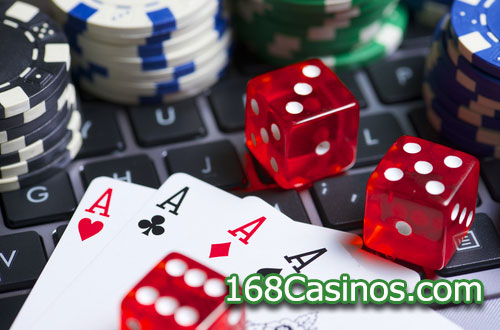Gambling Money
Introduction
Free money can be used prior to making the first deposit on a particular gambling website. Max cashout limits are usually quite low so that gamblers could request withdrawals. Wagering requirements vary depending on a gambling website you’re currently accessing. The gambling laws in the US are rather complicated and sometimes difficult to understand due to the fact that they are state-based and often different for each type of real money gambling. Almost every state, however, have either legalized or allowed a certain form of gambling.
I get asked a lot about Money Management in gambling. It is not a topic I address often, because money management is just mathematical voodoo. What you can expect to lose gambling is the product of the total amount you bet and the house edge. It does not make any difference how you break up your total amount bet. Given the same game, the expected loss is the same making a million bets of $1 and one bet of $1,000,000.
While money management does not change expected loss, given the same game and total amount bet, it can affect variance. Here are some money management strategies, according to what your goal is.
Player 1 plays for the social aspect of gambling, not so much to win. He prefers to bet conservatively, minimizing his risk of losing, while at the expense of likely not winning either. This player should flat bet. In other words, his wagers should be the same every bet, or close to it.
Player 2 is a risk seeker who wishes to either win a lot or lose a little. Of course, with a high winning marker, and low losing marker, it is more likely to achieve the losing one. The appropriate strategy for player 2 is to press his luck after wins, letting them ride. Most of the time the player will hit a loss before reaching his winning goal, but sometimes hit a good run and parlay his wins to whatever makes him happy.
Player 3 is a small win seeker, at the expense of the chance of a large loss. There are many betting systems that cater to this goal, but they all press bets after losing, until there is a win. Often this player will leave the casino happy for reaching his modest winning goal, but the occasional large losses will take back all the small wins, and more.
Judging by the ratio of expected loss to total amount bet, all betting strategies and money management systems are equally worthless. How much you bet and why should depend on the reason you are playing in the first place. Whatever form of money management you choose, once a bet is made you should always follow the best mathematical play. Finally, never pay for a betting strategy. As mentioned, they are all equally worthless, so you may as well use one of the free ones easily found on the Internet.

Written by: Michael Shackleford
Most gamblers lose. So why do people bet their hard-earned money? Find out a bit about the psychology of gambling, why people bet money and the reasons for gambling.
Psychology of Gambling: Reasons for Gambling
Ok, so we all understand that gambling offers you the chance of winning money or prizes, but have you considered some of the other reasons for gambling? A look into the psychology of gambling offers insight into that question.

Why Do People Gamble? - Risk Taking
One of the reasons for gambling is that it's human nature to feel excited when taking risks and the positive feeling gained from gambling is no different. 'Will my numbers come up?' 'Will my team win?' The sense of anticipation creates a natural high, an adrenalin rush, a feeling that very many of us seek when looking for fun and entertainment. A feeling that some people believe they cannot live without.
Why Do People Gamble? - Escapism
The gambling environment can provide an escape from everyday life. Whether it be the glitzy casino environment, a loud and exciting amusement arcade or even an online betting company, for the time that we are taking part we can be surrounded by different people, different sounds and emotions, all of which stimulate and arouse our senses.
Why Do People Gamble? - Glamorous
The media and advertising agencies understand the psychology of gambling and often portray a stylish, sexy, fashionable image of gambling. In film and TV, we see characters enjoying a night at the casino or an afternoon at the races. There is often a suggestion of 'high society' and attending at 'a place to be seen'.
Why Do People Gamble? - Social
Gambling is accepted as part of this country's culture and as such is widely participated in (with varying frequency) by the majority of the population. Some young people are introduced to gambling by learning to play card games with their parents at home, maybe we go the bingo with friends on a Friday night or meet after school at the amusement arcade.
Psychology of Gambling: The Common Misperception
The above reasons for gambling all tie into this: most people think about gambling as a low-risk, high-yield proposition. In reality, it's the opposite: a high-risk, low-yield situation. The odds always favor the house. Despite that, the thought and excitement of hitting a casino jackpot are often too alluring - regardless of its probability.
Learn more about Types of Gamblers and Signs of Gambling Addiction.
Sources:
- Illinois Institute for Addiction Recovery

Gambling Money Jar
next: What Type of Gambling is the Most Addictive and Why?
~ all gambling addiction articles
~ all articles on addictions
Gambling Moneyline
APA Reference
Gluck, S. (2008, December 29). Psychology of Gambling: Why Do People Gamble?, HealthyPlace. Retrieved on 2021, February 9 from https://www.healthyplace.com/addictions/gambling-addiction/psychology-of-gambling-reasons-for-gambling